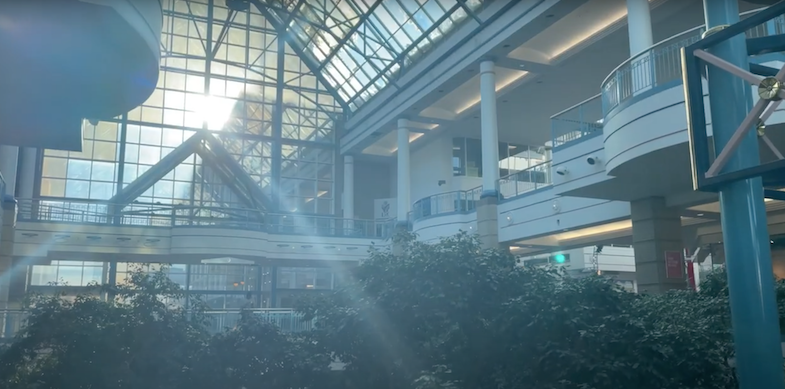Previously published in the Winnipeg Free Press April 29, 2024

What should we make of this month’s splashy announcement about Portage Place? The short answer is that the mall’s future still appears largely undecided. Aided by $77 million per year for 35 years (or $2.7 billion total) in provincial-government rent on a proposed medical complex, it seems that True North Real Estate Development will annex Portage Place to its NHL-based, billionaire-affiliated real estate empire by summer. The Southern Chiefs Organization will be involved to some extent, at least in an apartment tower planned for the west side of Portage Place, to be connected by skywalk to their Wehwehneh Bahgahkinahgohn redevelopment of the Bay building. Apart from these few details we are left with more questions than answers. In the months to come, the future of Portage Place should be judged and struggled over according to the priorities set out by Portage Place community members, Central Park neighbourhood residents, and inner-city community leaders over the past five years. Here are six pressing questions to guide talk and action around Portage Place right now.
How many homes planned for the west tower will be truly affordable to people in the neighbourhood? To be genuinely affordable, rents must be geared to the income of the tenant and not to a median market figure.
Who will get the sale price of the government-owned land and parking lot under Portage Place? This sum, once tagged at $47 million, should stay in the Central Park neighbourhood and fund desperately needed services such as a community centre and good-quality affordable housing. Portage Place was built by the three levels of Canadian government to improve living conditions in the inner city. That public investment should stay in the inner city and not be redirected to The Forks, despite the stated wishes of the Forks North Portage Partnership.
Will Portage Place remain a gathering place for people in the neighbourhood? Affectionately known by many as “Portage Place First Nation,” the mall has become a valued meeting place for friends, families, and neighbours, and a place to access affordable meals, clothing, and household necessities. This is especially true for Black, Indigenous, and recent migrant communities. True North has stated they plan to bulldoze the Edmonton Street atrium. What will become of the food court and other public gathering places between the two proposed towers?
Will community members continue to be banned, surveilled, evicted, and roughed up by the mall’s notoriously old-fashioned, ineffective security and policing practices, or will a new evidence-based, harm-reduction, de-escalation approach that prioritizes the safety of Indigenous women and girls prevail, as it has not prevailed at True North Square?
How much more public money will the Chipmans and their billionaire associates ask of us, what public goods will they be required to provide in return, and will they honour their promises? After coordinating the demolition of hundreds of units of affordable short-term accommodation at the Carlton Inn and St. Regis Hotel, which predominantly housed First Nations people visiting Winnipeg for healthcare, True North accepted $20 million in public funds in return for including affordable housing in True North Square. When True North broke that promise, City Council forgave them and let them keep the money.
How much decision-making power will SCO have, what will their share of the profits be if any, and what priorities will guide their actions? Will SCO’s involvement in Portage Place lead to strengthened ties with grassroots urban Indigenous-led groups working to support people in and around Portage Place, or will SCO’s allegiances tend more toward big business?
These are the current contours of the five-decades-long class struggle over Portage Place. The billionaires are organizing. Are we?
Owen Toews is the author of “What’s Going on With Portage Place?”, a chapter published in the Canadian Centre for Policy Alternative – Manitoba’s 2022 State of the Inner City Report, and the award-winning Stolen City: Racial Capitalism and the Making of Winnipeg (ARP Books, 2018).


